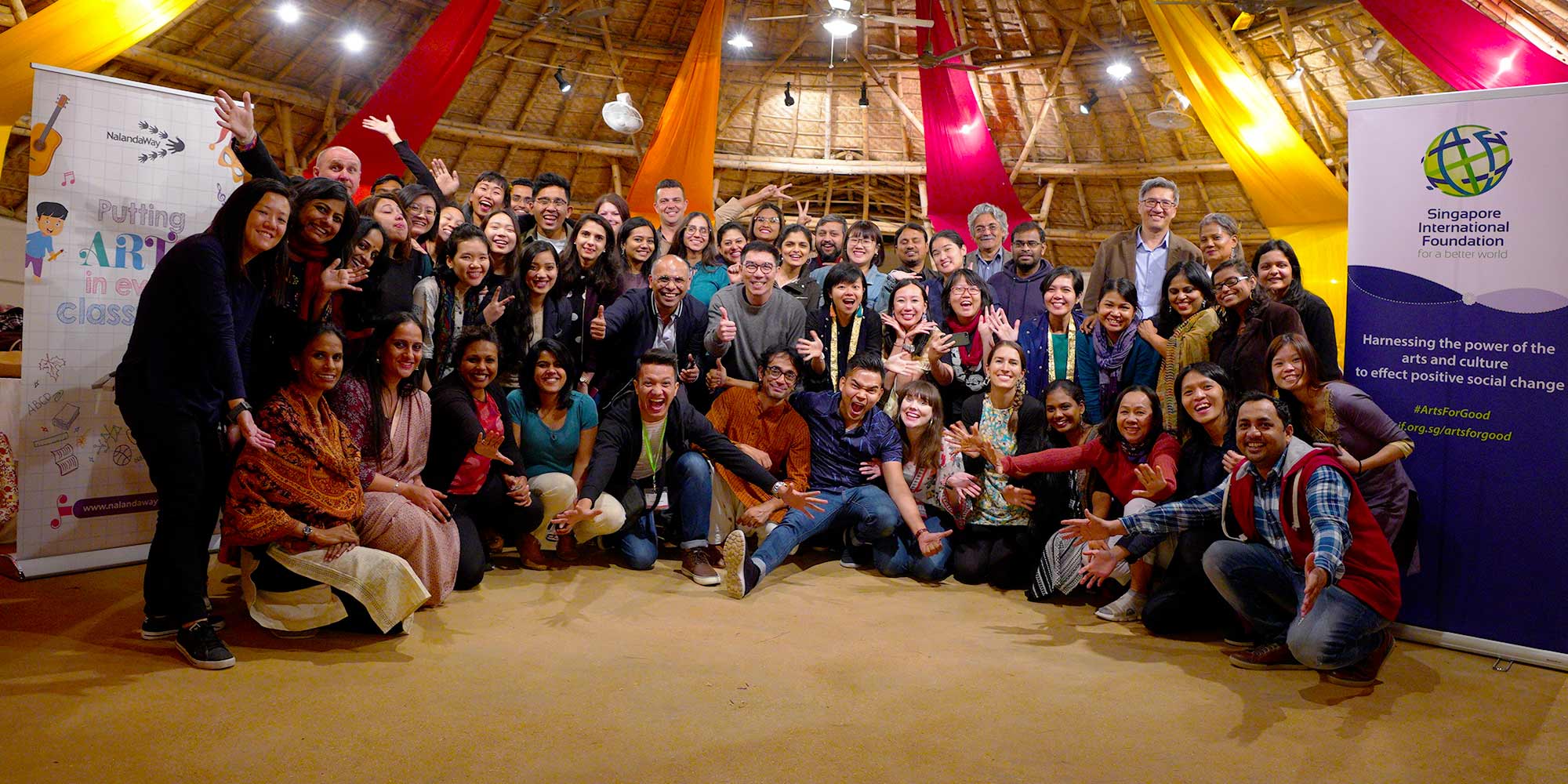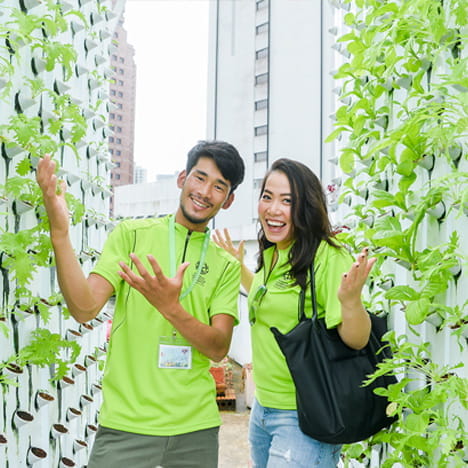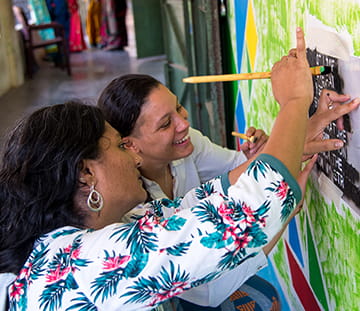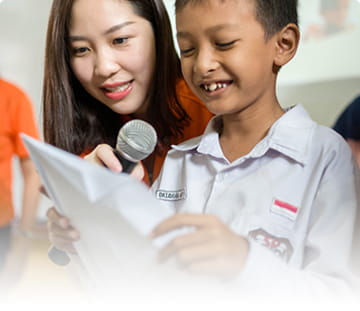Nearly 60,000 Students and Educators in Indian City of Bangalore Benefit from Five-Year Teacher Training Project
The initiative focused on process skills and the use of everyday objects as teaching aids to increase students’ interest and performance in Mathematics and Science.
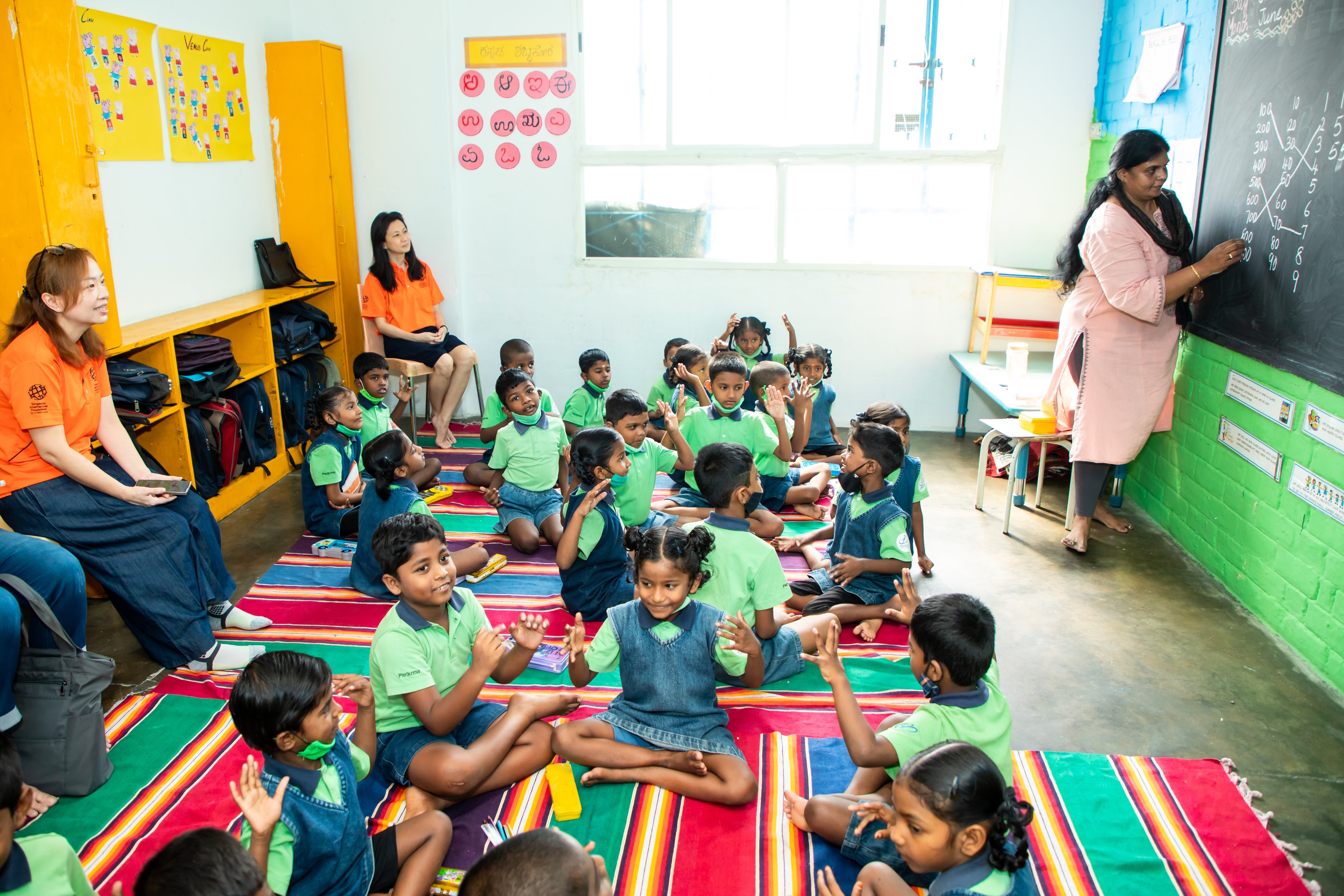

Mr Edgar Pang, Consul-General of the Republic of Singapore in Chennai (left) and Ms Shukla Bose, Founder-CEO of Parikrma Humanity Foundation, triggering a chain reaction on a Rube Goldberg machine. It was built by students and teachers from the foundation to celebrate the conclusion of the project.
A Rube Goldberg machine consists of several simple mechanisms that trigger a chain reaction, culminating in an intended goal. It combines engineering, geometry and principles of motion.
One such machine was a highlight at the closing ceremony of the Singapore International Foundation’s (SIF) Mathematics and Science Curriculum Enhancement Project in Bangalore on 5 June 2023. Two balls, released at the same time at two ends of a board, rolled down slides to their destination – cups at the bottom of the board. The interconnectedness of the machine’s parts was an apt representation of Singaporean and Indian communities working together to make the project a success.
The five-year project, launched in 2017 in partnership with Parikrma Humanity Foundation, aimed to enhance mathematics and science teaching standards in Karnataka through capacity building. Since 2003, the foundation has been providing education for underserved children in Bangalore, so that they can break out of the poverty cycle.
A team of Singapore International Volunteers (SIVs), comprising schoolteachers and seasoned teacher trainers, led the project. About 160 Indian educators were trained, with 46 being selected as Master Trainers who then trained their peers. The project benefitted at least 58,700 educators and students in Karnataka.
Some of the teaching techniques that the Indian teachers learnt from the project were the 5E Model (Engage, Explore, Explain, Extend, Evaluate), and to incorporate more hands-on and outdoor activities. By applying these to their lesson plans, they now prioritise developing students’ problem-solving process and skills over the memorisation of facts. They have also since observed increased engagement and inquisitiveness among their students.
Mrs Kajamma P, a teacher at Government Lower Primary School Geddalahalli, said: “Every teacher faces different challenges, but the Singapore volunteers tailored their advice to our differing classroom needs. I am very grateful to have been part of this project and I hope to share what I have learnt with other teachers.”

From left, SIVs Peggy Foo and Dr Ling Yuan (in orange) observing a Grade Two mathematics classroom lesson being conducted by Indian teacher Kavitha Anthony Juliyet.
Having picked up new teaching techniques from the workshops, it was just as important for the Indian teachers to fortify their learnings by watching them in practice. To do that, a group of 13 primary school mathematics and science teachers from Karnataka visited Singapore from 27 to 31 March 2023, where they observed lessons at Yew Tee Primary School and NUS High School.
They also visited several teacher training institutions such as the Academy of Singapore Teachers and the National Institute of Early Childhood Development. These institutions showcased diverse teaching and learning approaches and provided insights into Singapore’s education system.

The Indian educators and teachers from Yew Tee Primary School exchanged ideas on teaching strategies, resources and various mathematics manipulatives1 used in the classrooms.
Ms Nengneilam Haokip, a teacher from the Sahakarnagar Parikrma Centre for Learning, said: “I was impressed by Singapore’s progress in providing quality education to its citizens, regardless of their socioeconomic status.”
She added: “I also particularly enjoyed interacting with students at Yew Tee Primary School. We were able to witness their reactions to the lessons and understand the learning experience from the students’ perspectives. I am eager to apply what I have learnt in my classrooms, especially in terms of student engagement.”
The SIV team leader for the project was Ms Peggy Foo, a former lecturer at Singapore’s National Institute of Early Childhood Development.
Reflecting on her experience of working with the Indian teachers, she said: “I was inspired by their excitement and eagerness to learn, and that has taught me much about being passionate about my chosen profession – teaching – as well. Together we are better!”
1Mathematics manipulatives are objects, charts, and activities that engage learners while helping them develop their maths skills.
